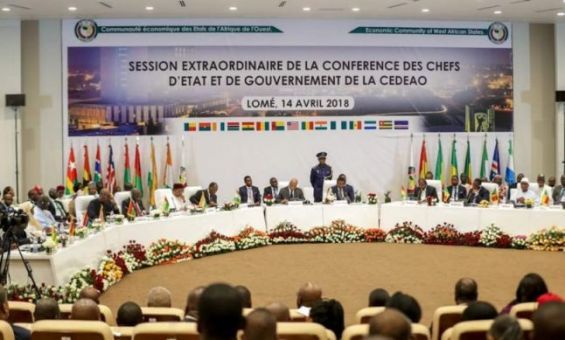The Extraordinary Summit of the Economic Community of West African States, (ECOWAS) was held Saturday, April the 14th, in the Togolese capital Lome. The summit was the second of its kind after the one hosted, January the 27th, by the African Union headquarters in Addis Ababa.
This new meeting comes as the «the Presidential Taskforce on the ECOWAS Single Currency», composed of the Ivorian, Nigerian and Ghanaian presidents, held its fifth meeting on February the 21st in Accra, Ghana.
Once again, Morocco’s bid to join the regional economic union officially submitted in March 2017, has not been reviewed, said the Community in a statement. The situation in Guinea-Bissau, the serious political tensions in Togo and the hunger and famine crisis in West Africa have been in the heart of this extraordinary session.
The Moroccan request to wait longer than expected
Last February, ECOWAS president called think-tanks and researchers in the region to conduct a new study to determine the potential impacts Morocco’s membership would bring to the organization. The findings of this study have not been revealed yet missing the deadline, 2nd of March.
For the record, on the 16th of December in Abuja, ECOWAS member states decided in a communiqué that «with regard to Morocco’s full membership of ECOWAS (…) the Summit set up a committee comprising the Presidents of Togo, Cote d’Ivoire, Ghana, Guinea and Nigeria, to adopt the terms of reference and supervise a detailed study of the implications thereof».
Relying on businessmen to defend the Moroccan bid is the only option that would stop some of the countries in the region which are against this membership. Nigeria, for the record, was the first country to express its disagreement and the trend was later noticed in Senegal and Guinea.




 chargement...
chargement...











